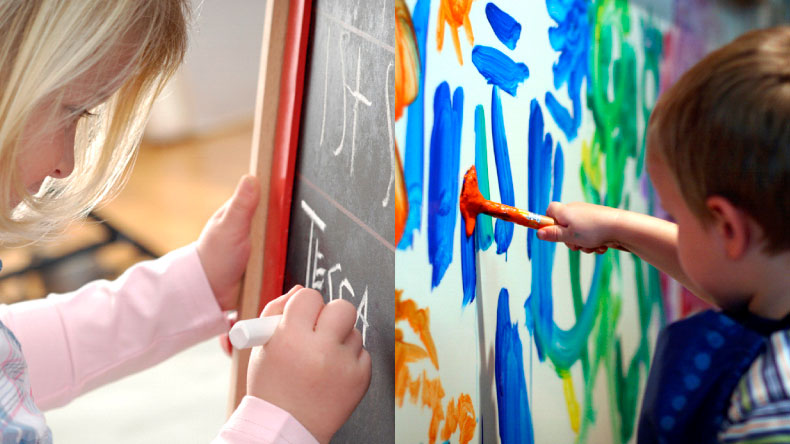Top Ten Tips for the Transition to Preschool
- Going to school is a parent's decision, not a child's. Don't ask, "Do you want me to sign you up for school this fall?" or "Do you want to go to school today?" However, be sure to listen to your child's questions and concerns. Reassure him/her and share your excitement about this transition.
- Help your child become familiar with the school before he/she actually begins attending. Take walks through the school neighborhood. Point out the entrance and playground. Talk about drop off and pick up routines, and let your child help you plan your daily goodbye ritual: perhaps 4 kisses, plus a "bonus kiss" for later.
- Practice "school time." Learn how much time you'll need to get ready each day; feeling rushed only adds to the anxiety. Practice eating breakfast and going to the bathroom on a schedule. Each afternoon or evening, prepare for the next morning: help your child choose appropriate clothing, a snack, lunch, a show-n-tell item, etc. Adjust evening and morning routines as necessary so your school departure runs smoothly.
- Make an "event" of purchasing or creating your child's own calendar. A calendar will help your child understand the often-confusing concept of school days vs. non-school days. Add family outings, doctors' appointments, birthdays, and so on to the calendar, and your child will see that school is just one more part of life.
- Expect a reaction . . . or a delayed reaction. Whether this is your child's first, second, or third year of preschool, there are adjustments to be made. And he/she may be so excited about school that other emotions remain hidden for several weeks. This commonly occurs after a school vacation, when your child has been reminded of what it is like to be home.
- A child is best served when parents and teachers work as a team. Talk to your child's teachers about his/her adjustment to preschool; home reactions may vary from school reactions. (Rely on the teachers, not other parents, to assess your child's transition. Each child is unique.) And make time to be involved; your child gains much support and pride when you organize a field trip or read during storytime.
- On the way to school, generate excitement about the day to come by being curious about things that can only be answered by your child's attendance. "I wonder-will you be painting or using scissors today?" or "Don't forget to check on the polliwogs-they're changing everyday!"
- Be on time for drop off and pick up. It can be hard to be the last to arrive and the last to leave. In between, make the time you spend away from your child sound unexciting.
- Expect fatigue. Being without you and with fifteen or more other children for several hours is exhausting. Don't expect your child to be able to run a bunch of errands on the way home, and during this time of transition, don't fill the calendar with playdates.
- While you are looking forward to hearing about your child's day, he/she may not be able to share with you immediately. Some children need time to assimilate an experience before they talk about it, and others think of school as "their own" and put up a wall of privacy. Be patient. You can always talk to your child's teacher for the inside scoop.
Roxy Leeson was a preschool director for over twenty years. She is an Early Childhood Consultant and mother of two grown daughters.

